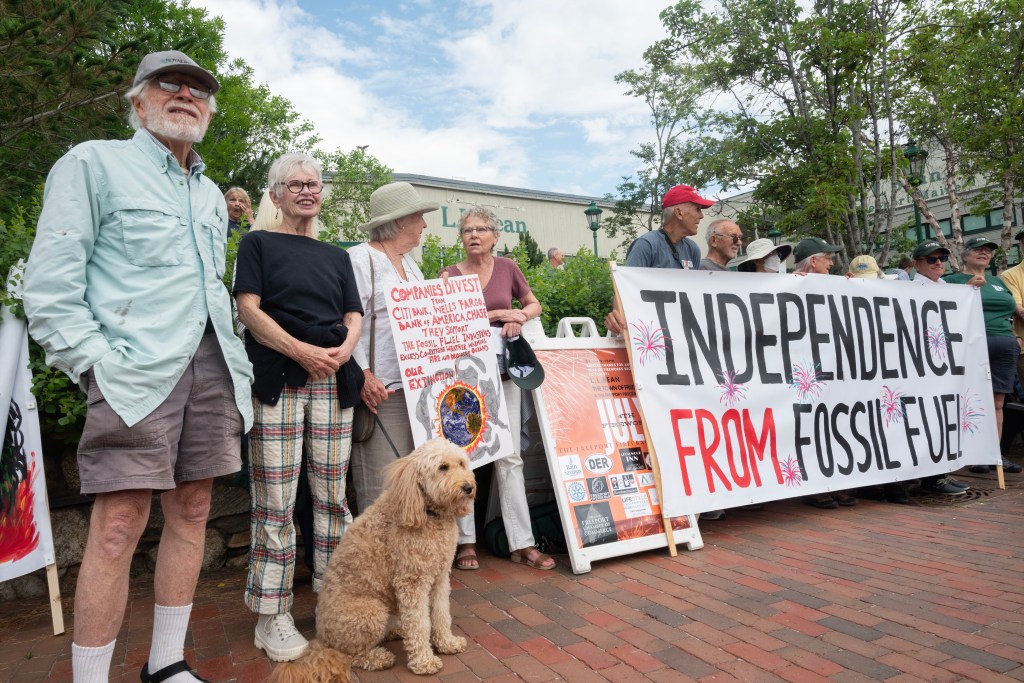About two dozen members from Th!rd Act Maine gathered on a crowded Main Street, calling for independence from fossil fuels as the Fourth of July parade marched through town. The protest was set up outside of L.L. Bean’s Flagship store, a place the group frequents as it protests the company’s ties to fossil fuels.
“Ultimately, our issue is our need to transition rapidly from fossil fuels,” said Bill Rixon, a Freeport resident and Th!rd Act Maine member.
Th!rd Act Maine, a group of Mainers over the age of 60 working to fight climate change, was founded in 2022 and currently works on a statewide divestment campaign. It has frequently called on L.L. Bean to pressure its credit card provider Citigroup to divest from fossil fuels.
Citigroup was listed as the second-largest financer of fossil fuels in a 2024 finance report released by Banking on Climate Chaos. JPMorgan Chase was listed as first.
Citigroup announced on its website last year that it is working towards reducing greenhouse gas emissions across its supply chain by 2050. It did note, however, that it was one of the biggest financers of “traditional energy,” referring to nonrenewable forms of energy such as coal and petroleum.
L.L. Bean and Citigroup are not the only targets for Th!rd Act Maine protests this summer. Rixon said that the group will next demonstrate in Augusta at the Maine Public Employees Retirement System (MainePERS). The goal, he said, is to pressure officials to abide by a law passed in 2021 – L.D. 99 – which calls on Maine to divest its assets from fossil fuels.
The Portland Press Herald reported at the time of the bill’s passage that selling off stocks already invested in the industry may never happen due to a clause in the bill that gives fund managers latitude over protecting interests in Maine’s pension fund. Rixon, however, sees delay in divestment as MainePERS “dragging [its] feet.”
“We’re in a climate emergency,” Rixon said. “And we need to start acting like we’re in a climate emergency.”
Original Story at www.pressherald.com
